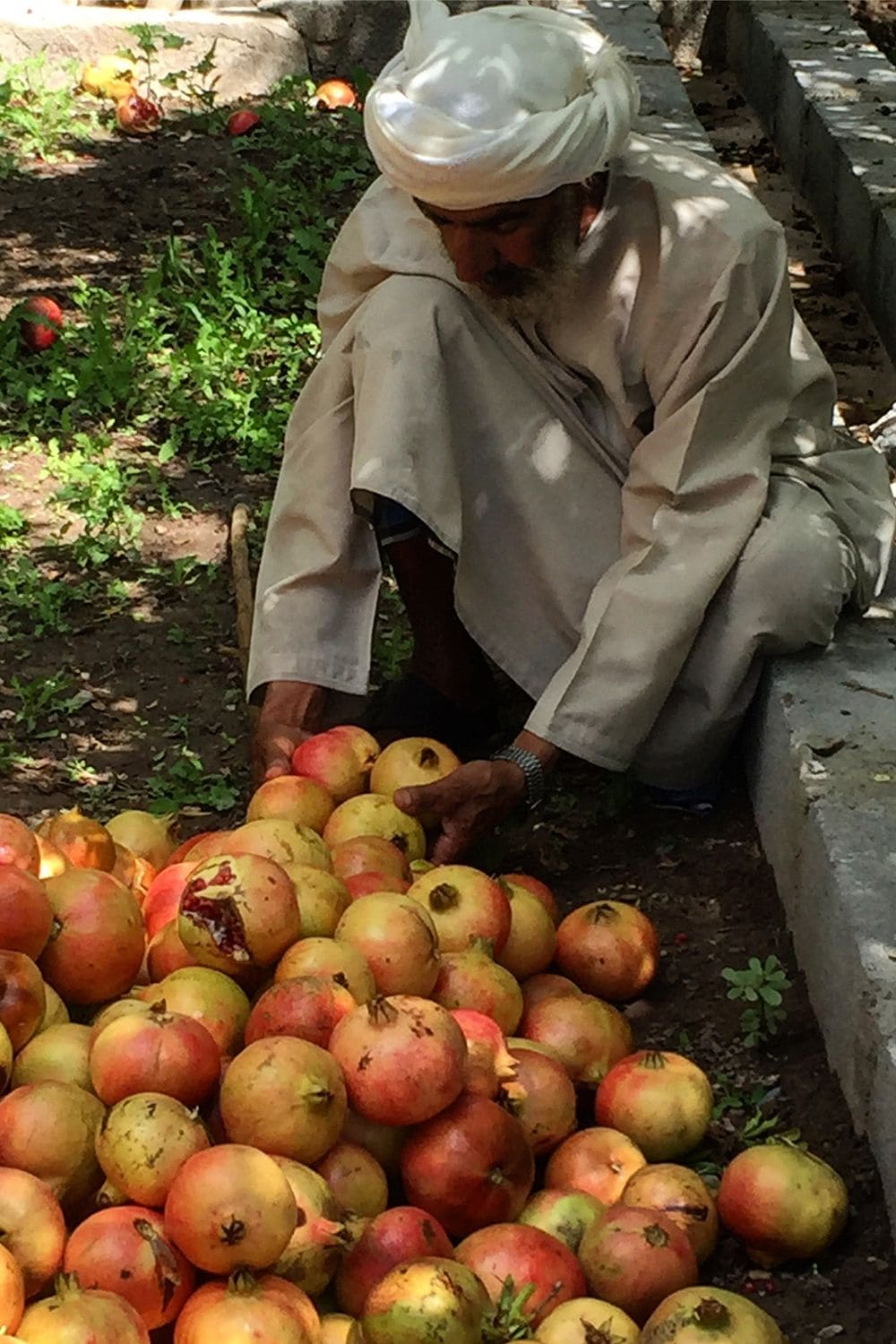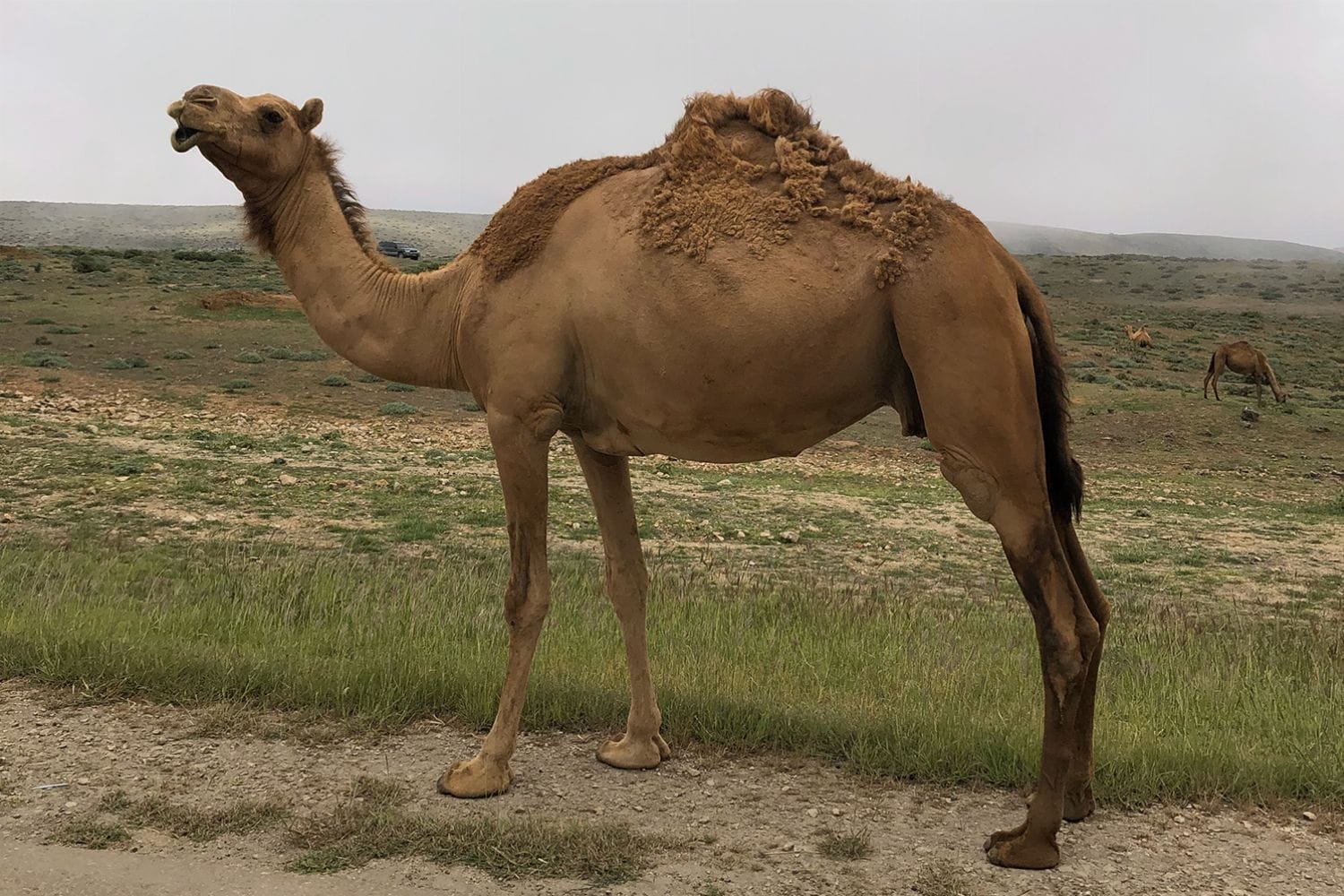
Camels in the Fog
My Stages
Crossing The Desert During Summer
“A thousand-kilometer road trip through the desert awaits us!” Abdullah packs the remaining suitcases into the Ford Edge. I’m staying with his family in Oman and experiencing summer here for the first time. In the capital Muscat, it is currently over 40 degrees in the shade. To explain it more precisely: it is scorching hot in the truest sense of the word. And then there’s the high humidity, as the city is located right by the sea. It doesn’t really get cool at night either. We are happy about 32 degrees Celsius!
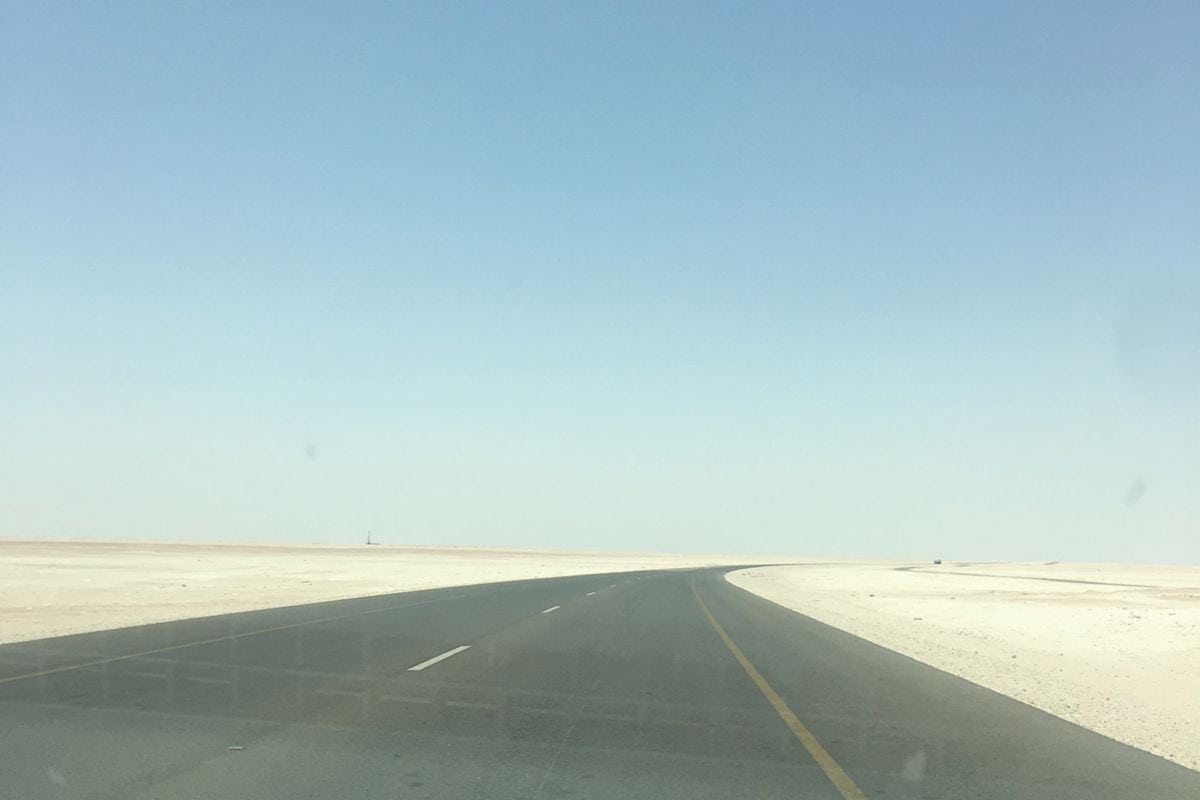
It’s early in the morning. The direct journey will take around ten hours. Our destination: the city of Salalah, located on the Indian Ocean. It is Khareef and while it is too hot everywhere on the Arabian Peninsula, its inhabitants are traveling to the south of Oman.
Lush green in the Khareef
Khareef means “autumn” in Arabic and thus describes the season as we know it in Central Europe. Rainy and foggy. I can hardly imagine that such weather conditions can prevail here in Oman. I have seen photos and videos, but they seem surreal to me.
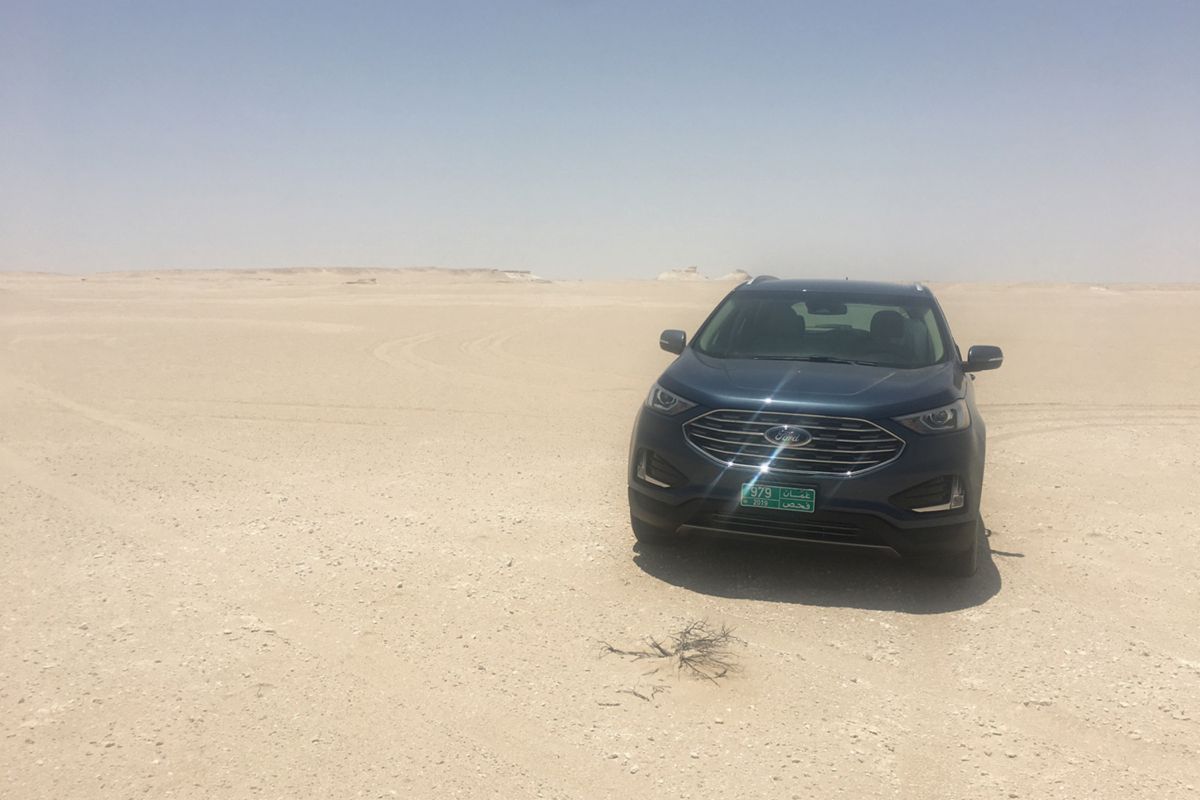
The journey continues on a straight highway across the desert. The closer we get to our destination, the more foreign license plates we see. They come from everywhere: Saudi Arabia, Kuwait, Dubai. Salalah and the surrounding area have become the hotspot of Arabia in the fall. Then it’s high season and the prices for hotels and accommodation skyrocket. This natural spectacle lasts from mid-June to mid-September. After that, the south turns back into a barren desert. It’s now 45 degrees outside. A short stopover is out of the question. It’s just too hot. Petrol stations are also rare. Sometimes there is an avenue of palm trees by the roadside. And that’s about it. But the desert inspires. As the wind blows, so it leaves shapes. The sun also reflects off the grains of sand and makes the sand shimmer.
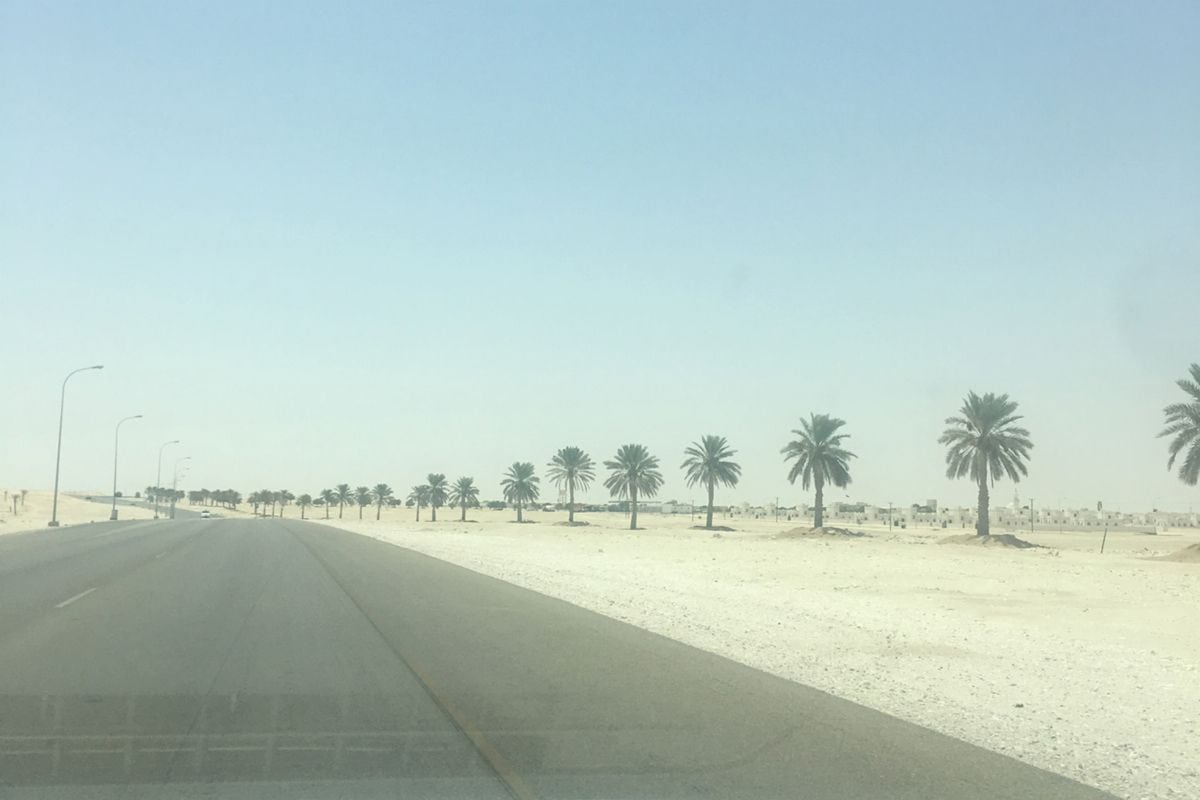
We are approaching the government of Dhofar in the southwest of the country. Salalah is the capital. “When we drive over this hill, you’ll be in a green paradise,” says Abdullah. He is looking forward to the adventure as much as I am, even though he spends vacations here with his family almost every year. As soon as we reach the top of the hill, I look out over green nature with rain clouds hanging over it! It’s like something out of a science fiction movie! Stunned and speechless, I stare around me. Abdullah grins: “You wouldn’t have expected that now!” This lush green with the overcast sky … I could have been in Scotland! The temperature is also absolutely pleasant. It’s around 25 degrees outside.
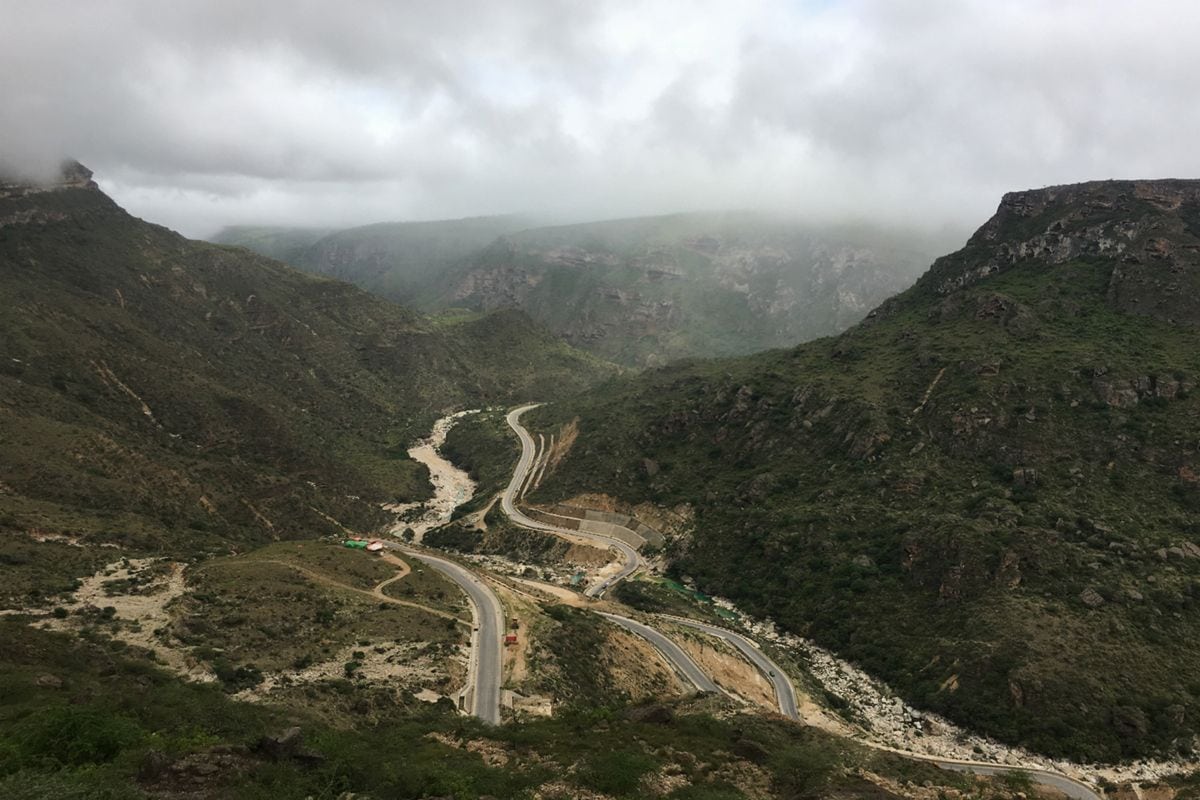
Residing in the Best Hotel of the Country
We reach our destination. Salalah was even the capital of Oman until 1970. Before we check into the Al Baleed Resort by Anantara, we make a stop at one of the many fruit stands. The area is known for its bananas and coconuts. One stall after another lines the roadside. The bananas are small, sweet and creamy. They taste like freshly prepared banana milk. I eat two at once and wash them down with coconut milk. The hotel is located in the middle of the city right by the sea.
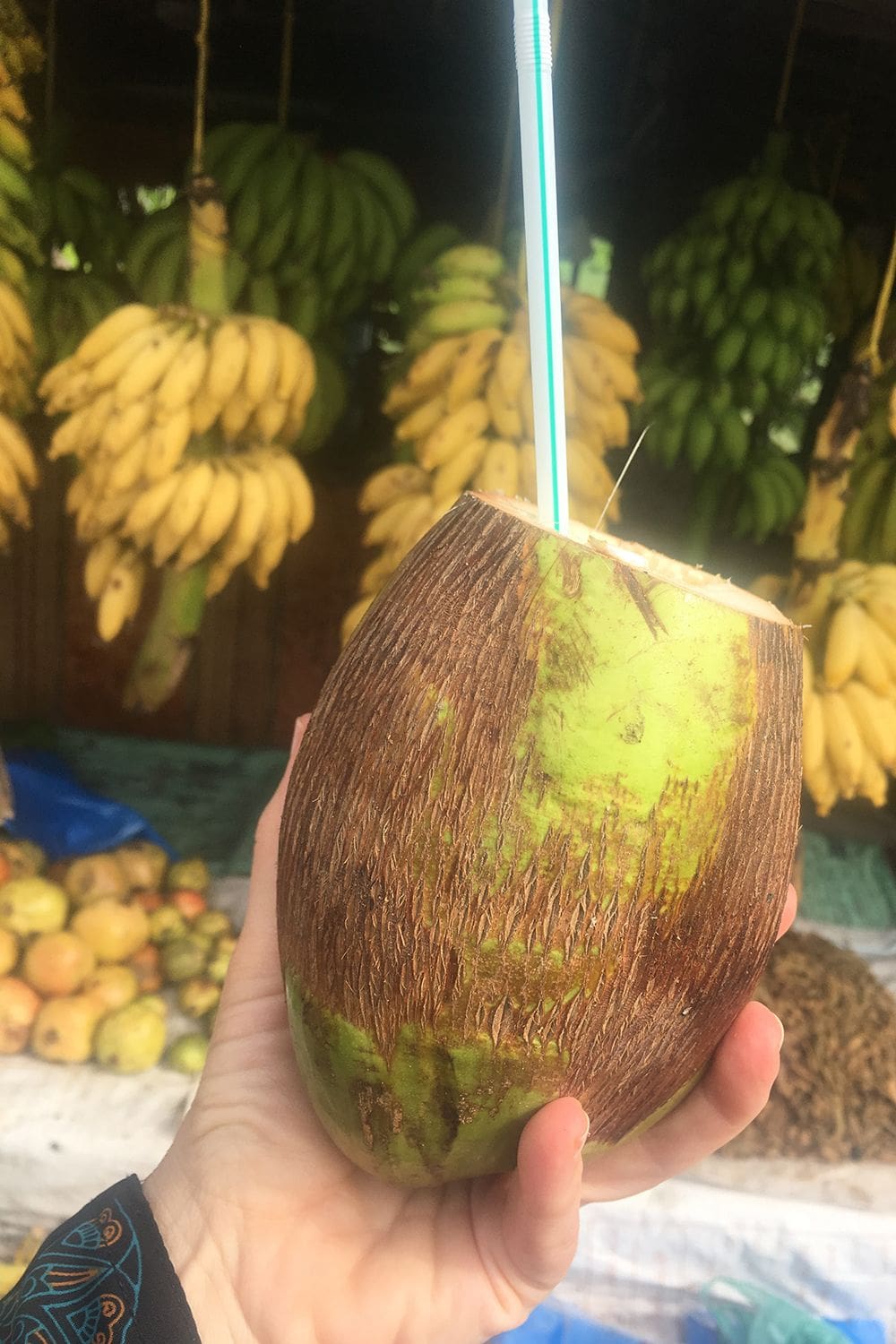
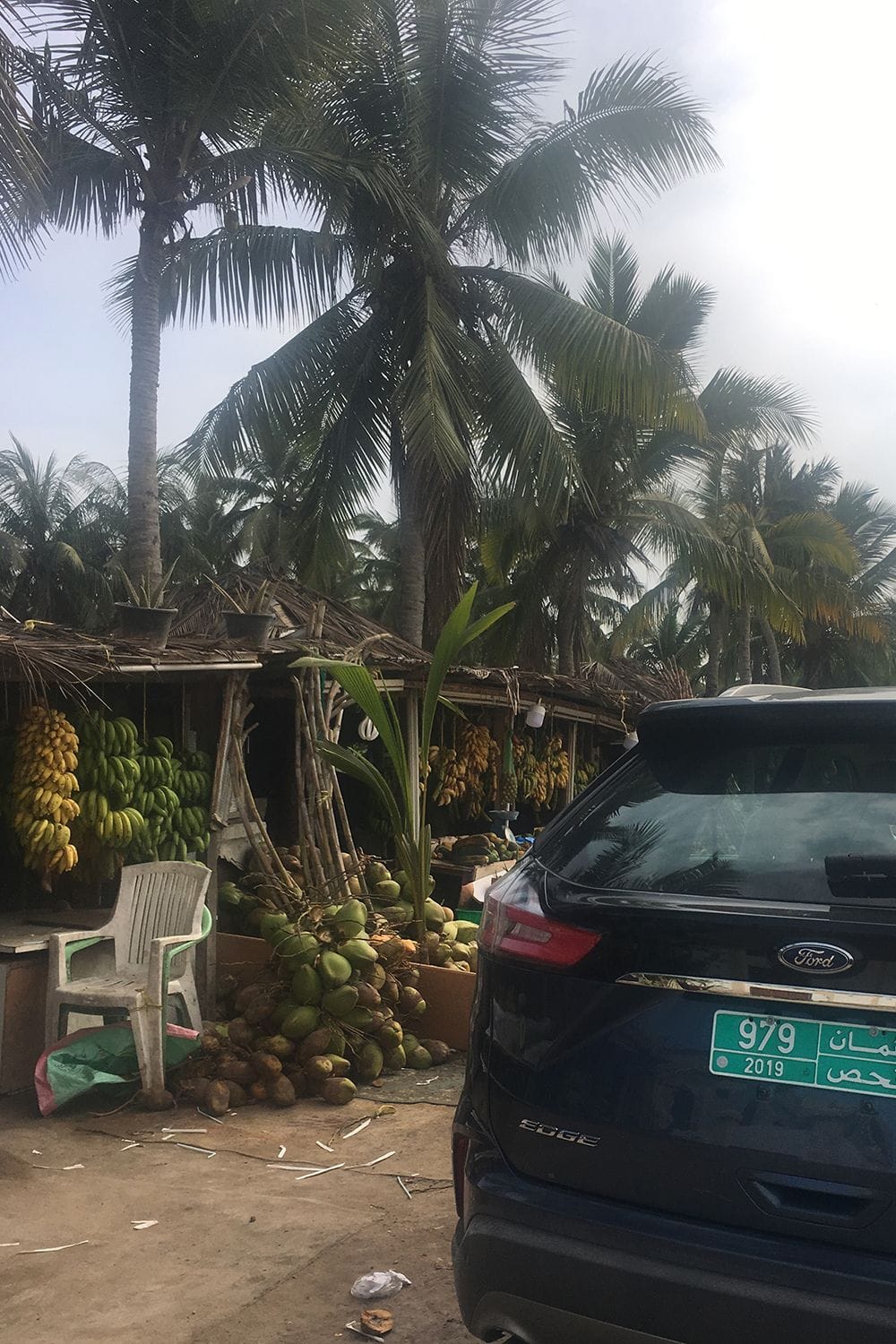
The five-star resort is one of the best hotels in the country. I get to stay in a pool villa with a garden view. Private pool in the garden, closed off from the outside world. I would love to jump into the water, but Abdullah is already waiting for me.
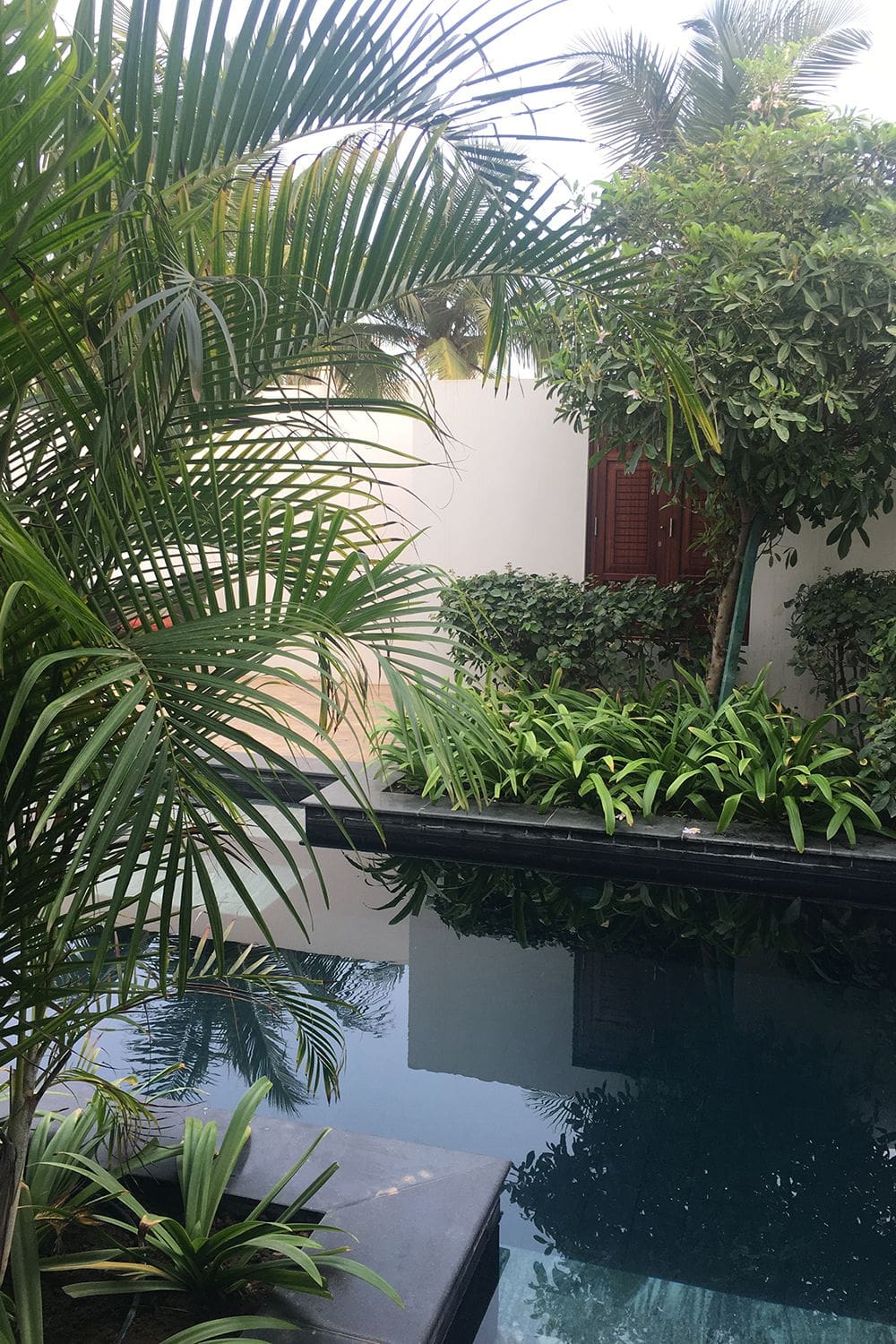
I was here three years ago. However, it was April and I visited the wild frankincense trees. The gold of southern Arabia is considered the best in the world and the trees only grow here in the whole country. And while we’re there, we first visit the famous historic incense souk. It is mostly women who sell incense in various qualities, as well as bokhoor, a mixture of woods and oils that the farmers mix themselves.
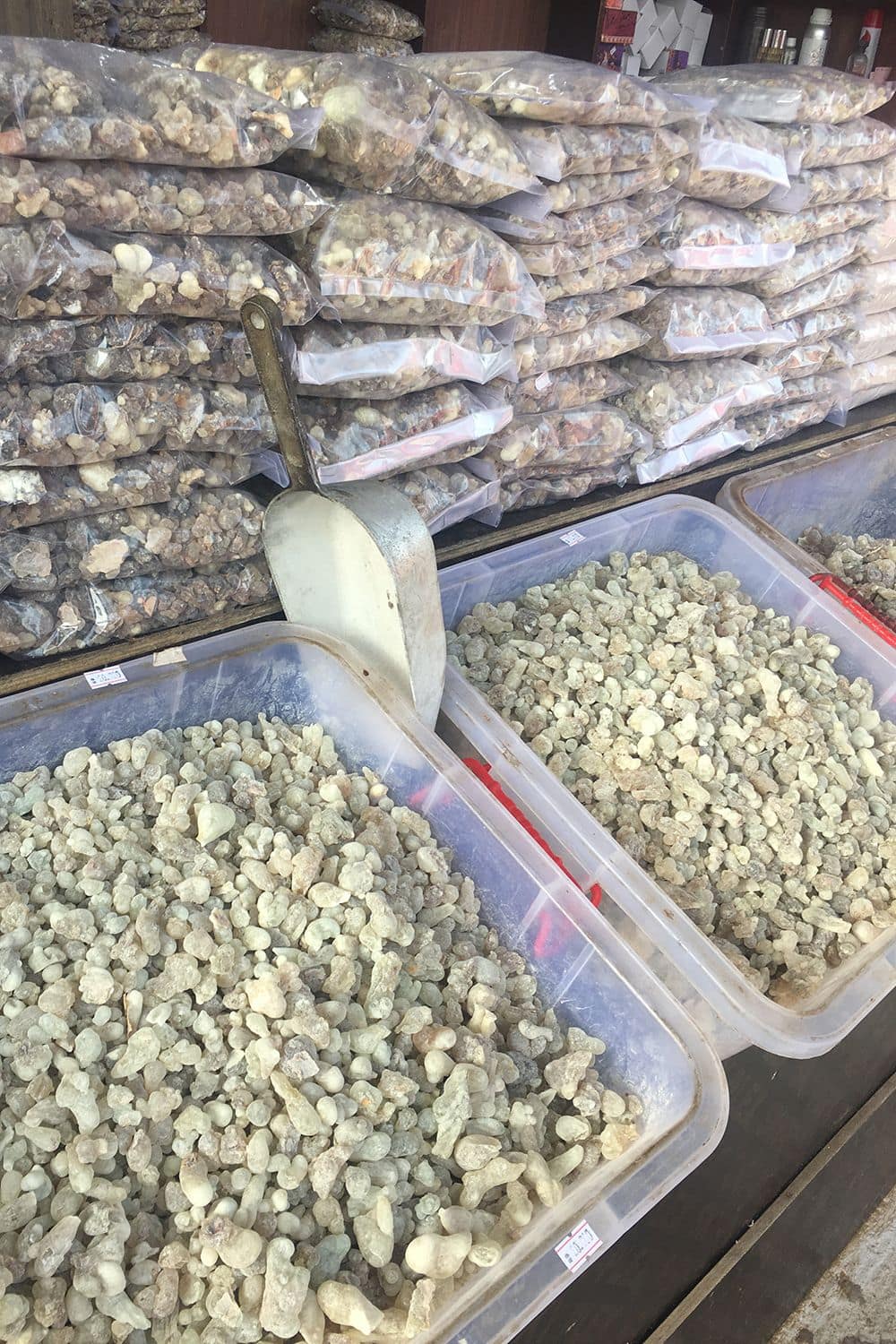
Abdullah buys a whole supply for the family, because incense and bokhoor are lit in the house every day. I love it when the mistress of the house comes into my room to fumigate! The fragrance is pleasant, soothing and disinfecting. We also buy incense to chew and drink. It can be used as chewing gum. It takes some getting used to at first, but then you love it. It disinfects the oral cavity and whitens the teeth. A purely natural product with a great effect. Even the ancient Egyptians were busy chewing on incense beads, which they refined with oils for fresh breath. I also buy a few traditional incense burners made of clay.
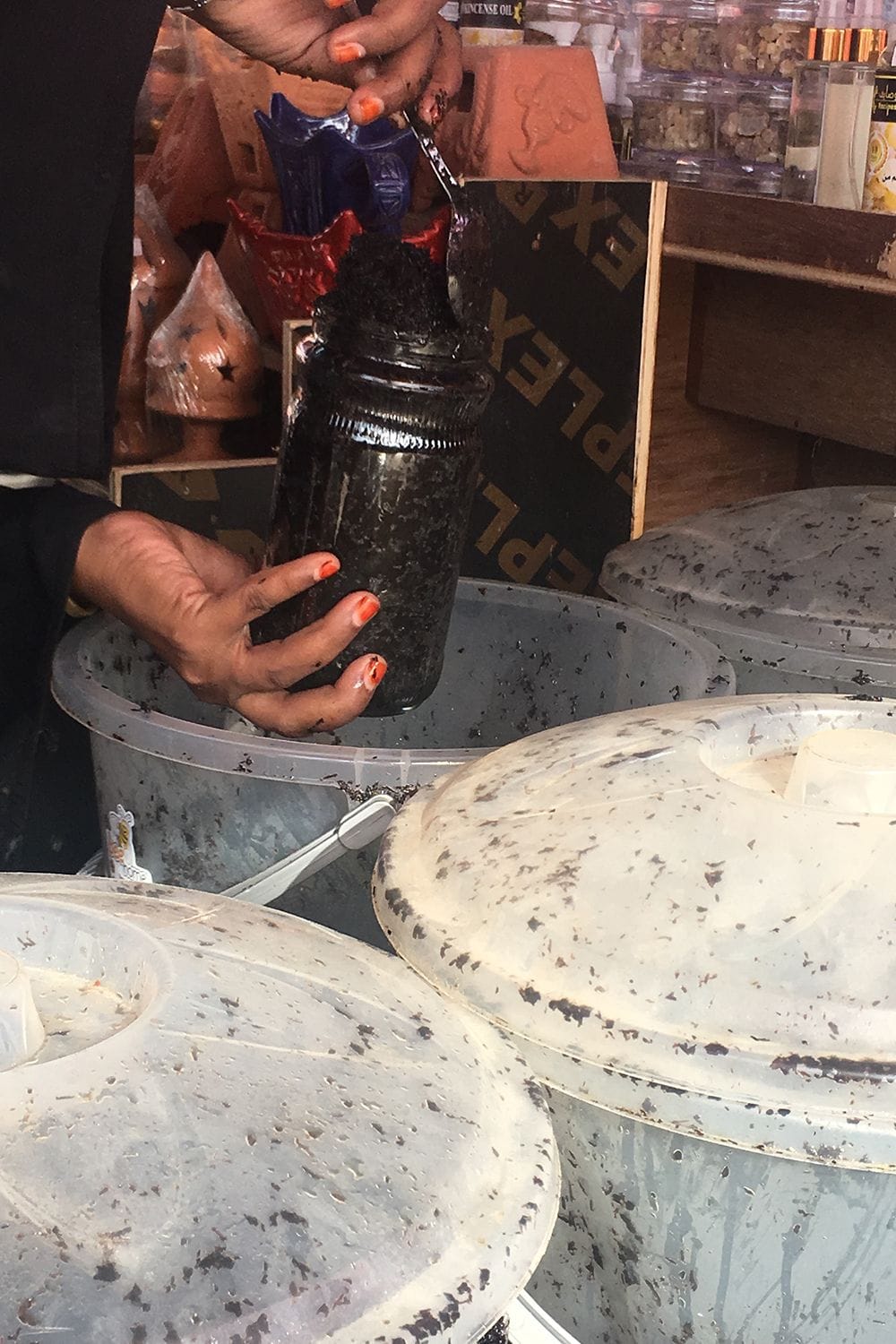
When we arrive at the hotel, we are exhausted but also hungry. We have reserved a table at the Asian restaurant Mekong. Korean, Thai or Vietnamese – there’s something for every Asian fan! I was already impressed on my first visit and nothing has changed in terms of quality.
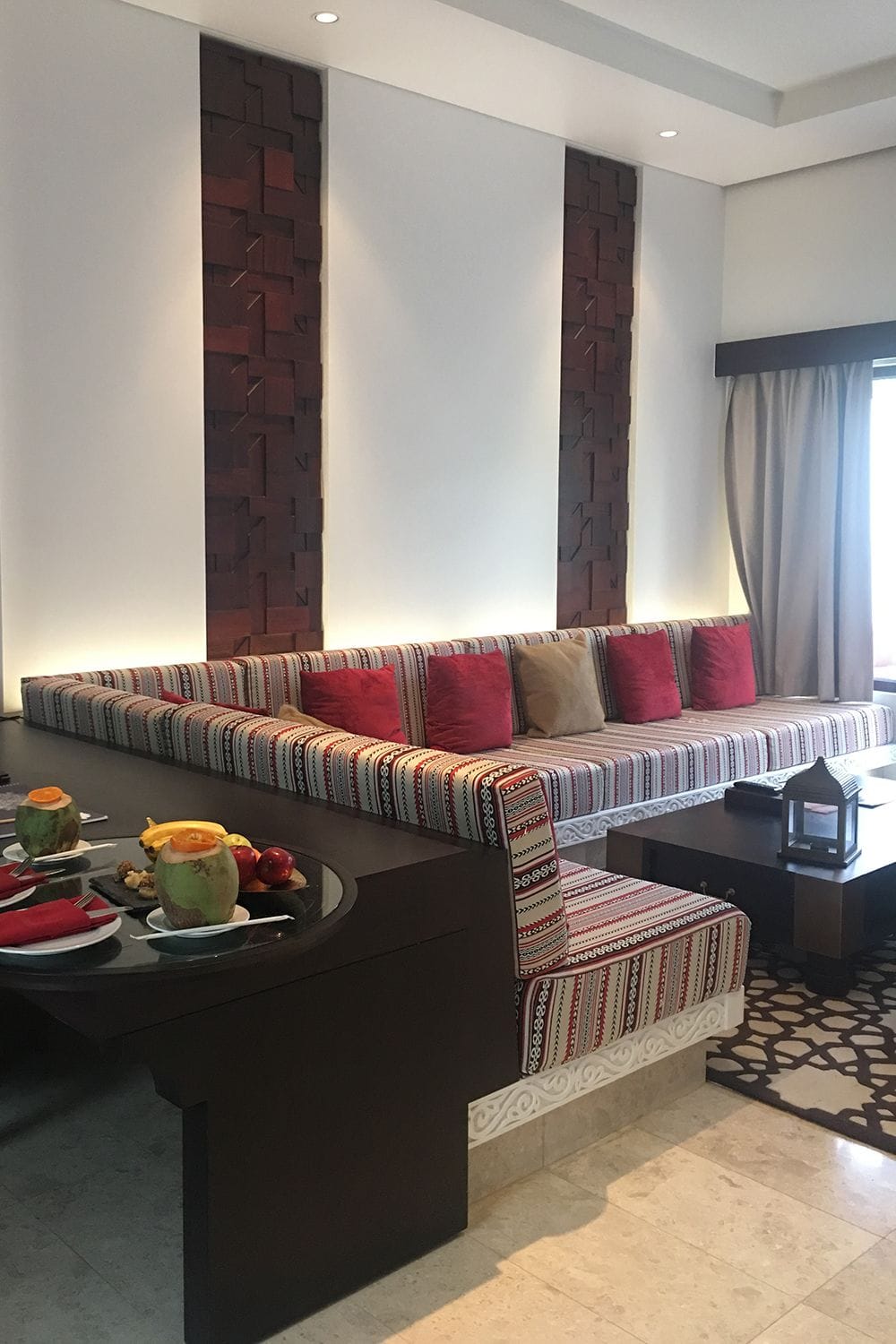
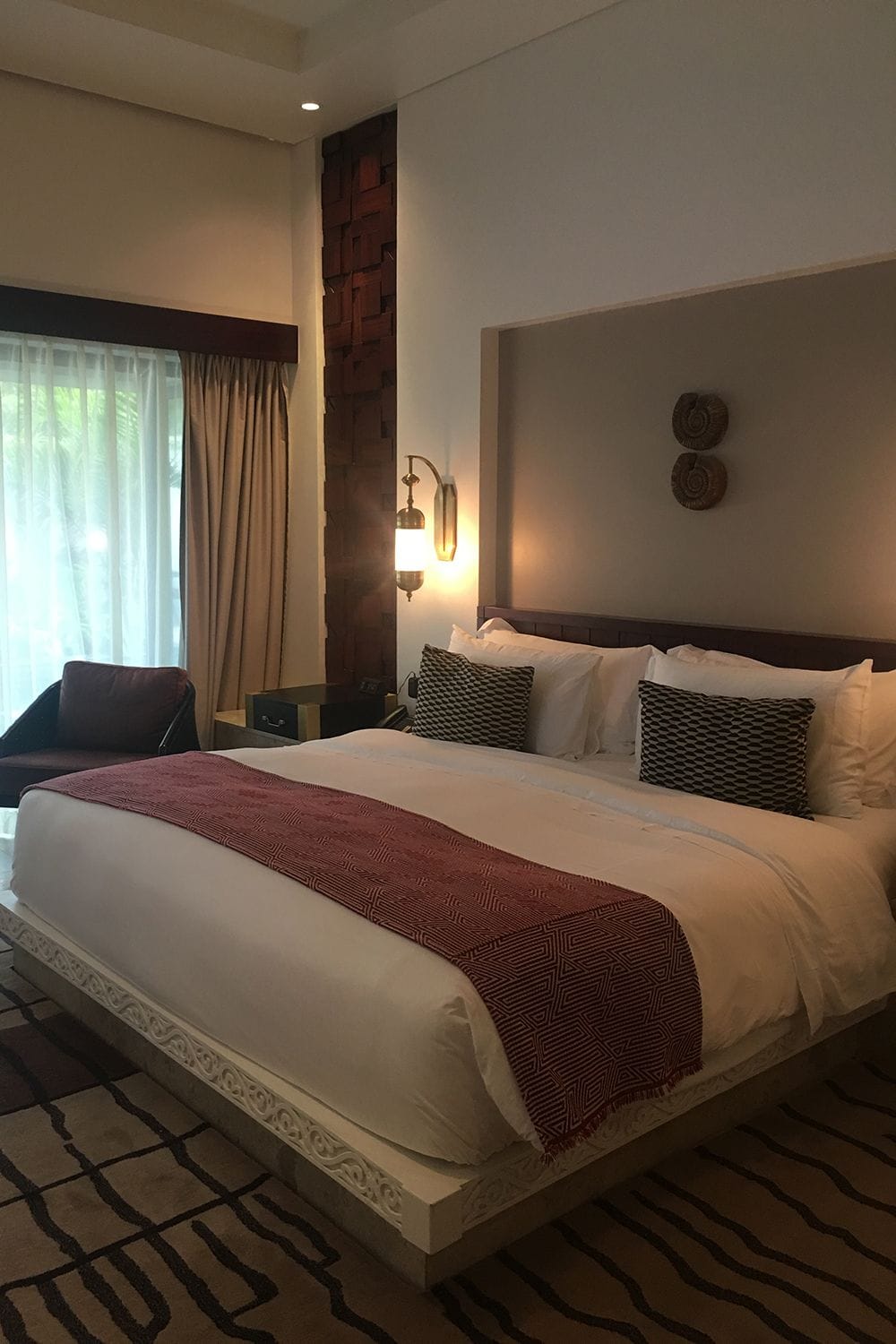
Before I go to bed, I actually go for a swim in my own pool. I can’t see any stars – it’s still cloudy. Abdullah reminds me to go to bed on time, as we will be driving a long way tomorrow to see the area in all its glory.
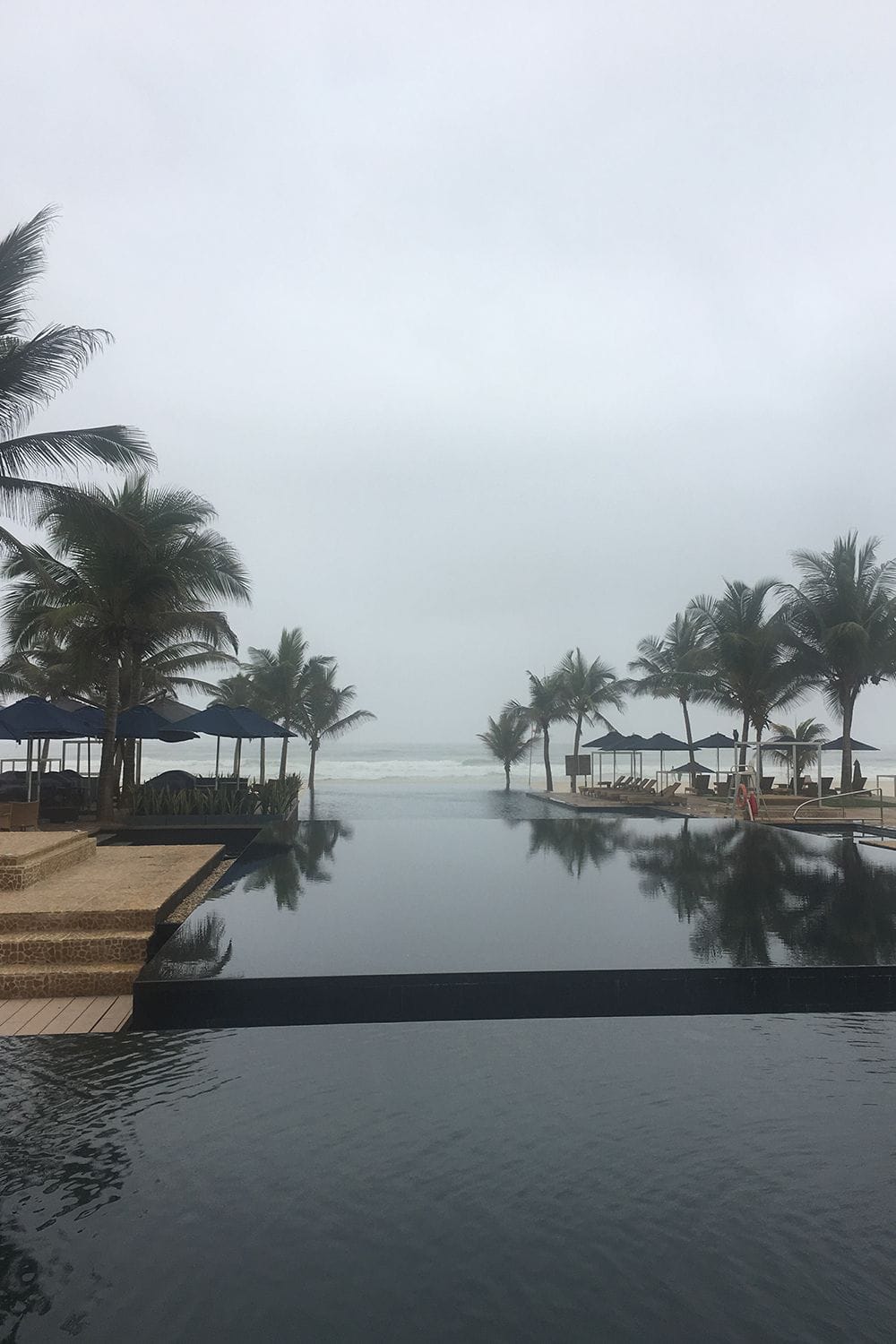
The next morning, it’s time for breakfast. The buffet is so large and plentiful that it feels like you have to cover kilometers. There are even small pretzels – all homemade, of course. We have breakfast inside as it might start raining soon. Even in this weather, the infinity pool is simply beautiful and seems to merge with the sea on the horizon. We set off at around ten. And it’s raining cats and dogs. This is also unusual for me, as rain is so rare in Oman. And if it does rain, the Omanis are happy to go outside and let the precious drops of water roll off their heads. This is also the case with my Omani family. When it rained for the first time since I arrived in Oman, my brothers excitedly came to get me. A spontaneous picnic was organized on the covered veranda. People sat together happily and enjoyed the beautiful weather.
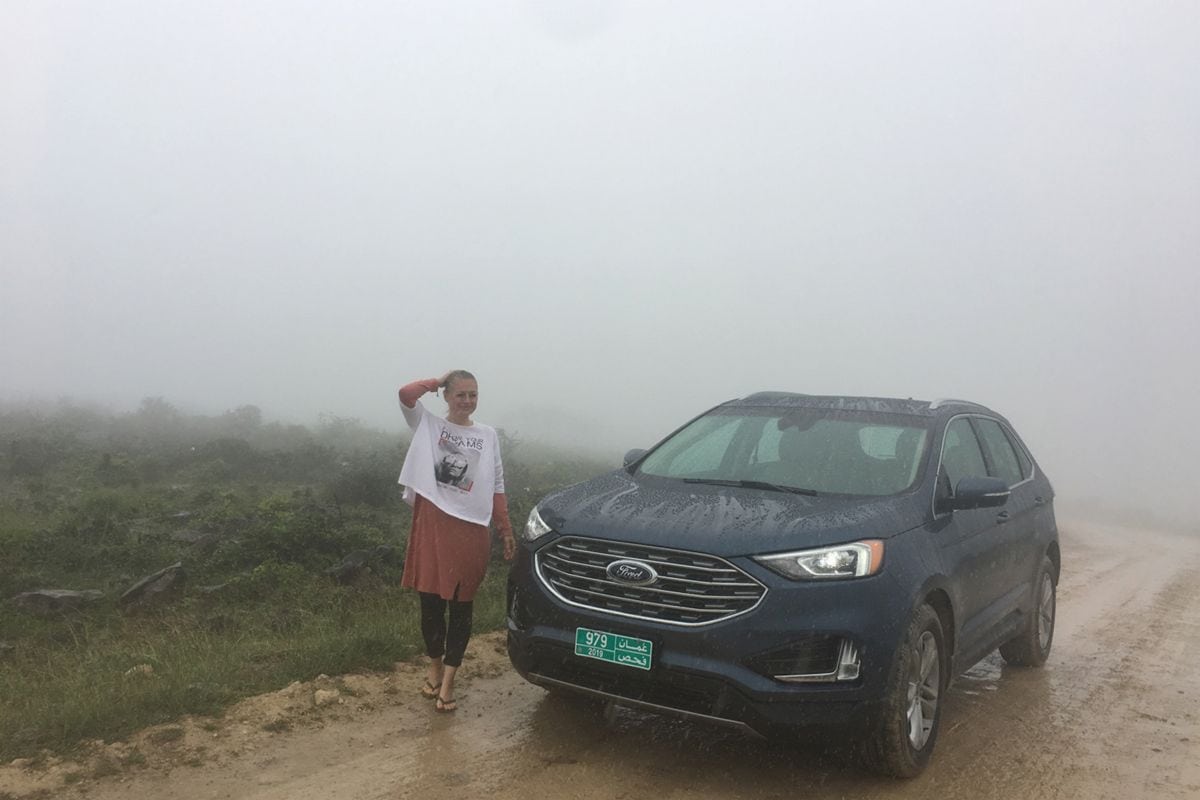
In surreal Heights
It’s 27 degrees in Salalah. We drive up into the mountains with a stopover at Mughsayl Beach. The “Caribbean of the Orient” is one of the most beautiful natural beaches in the country. It’s stormy there today. The waves crash against the rocks with such force that the crystal-clear water spills over the beach for meters. The Omanis and Arab tourists take up position to get a taste of the water.
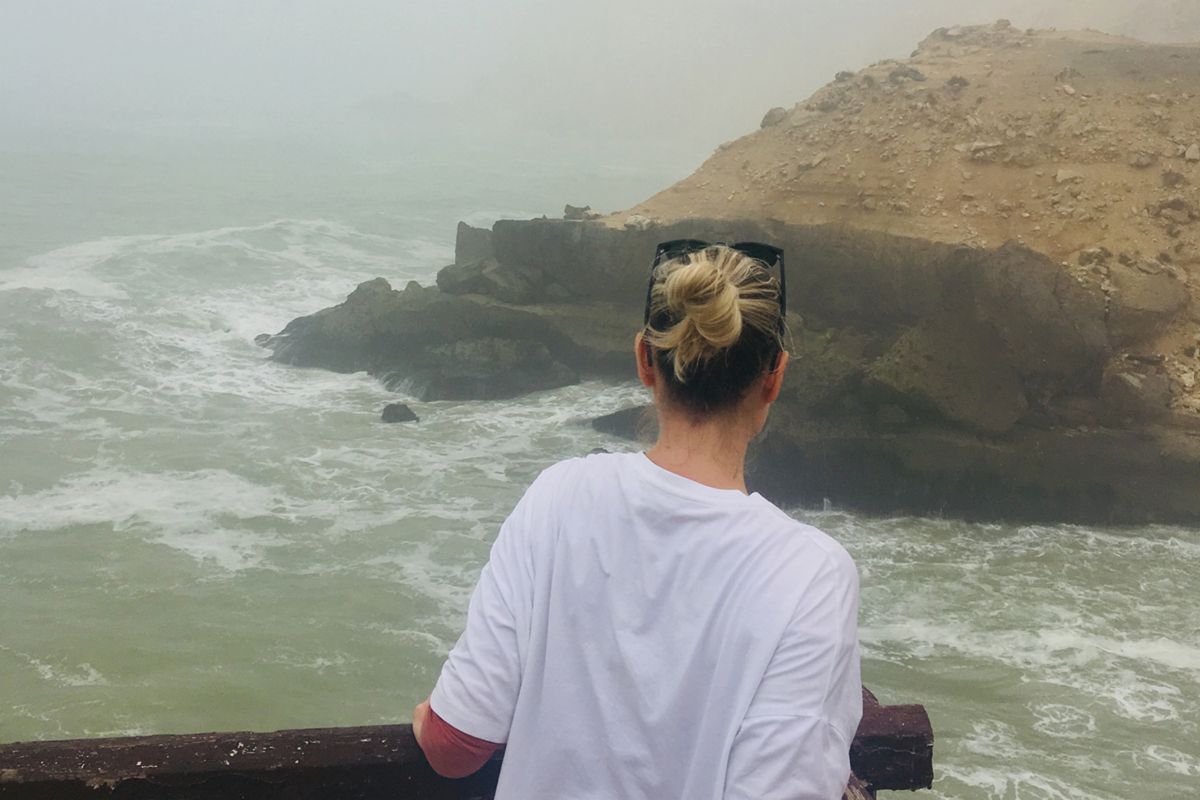
Fog rolls in. Am I really in Oman or somewhere on the English or Scottish coast? The fog gets deeper and deeper. The hills and rock faces, which also contain caves, are no longer visible. Will we be able to continue? “Sure! We’re also here because of the fog.” Abdullah is surprised at my concern. While fog means danger here, here it is synonymous with vacations.
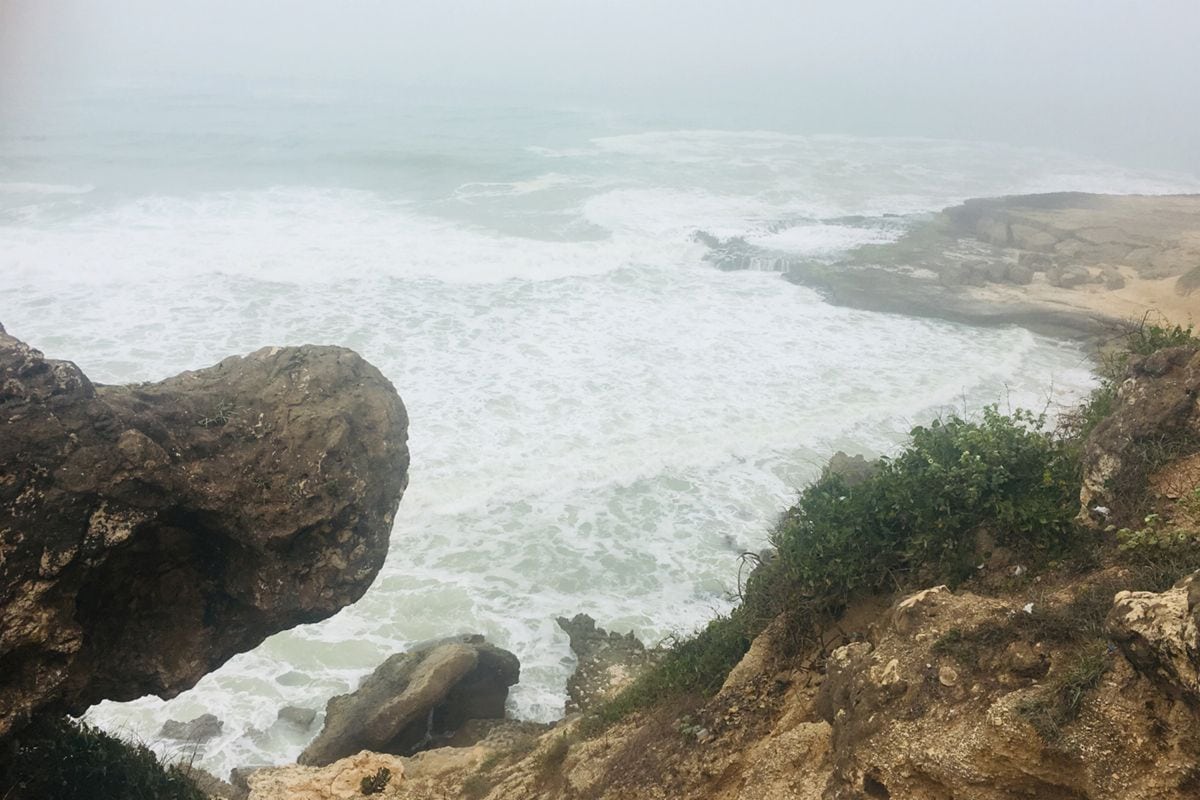
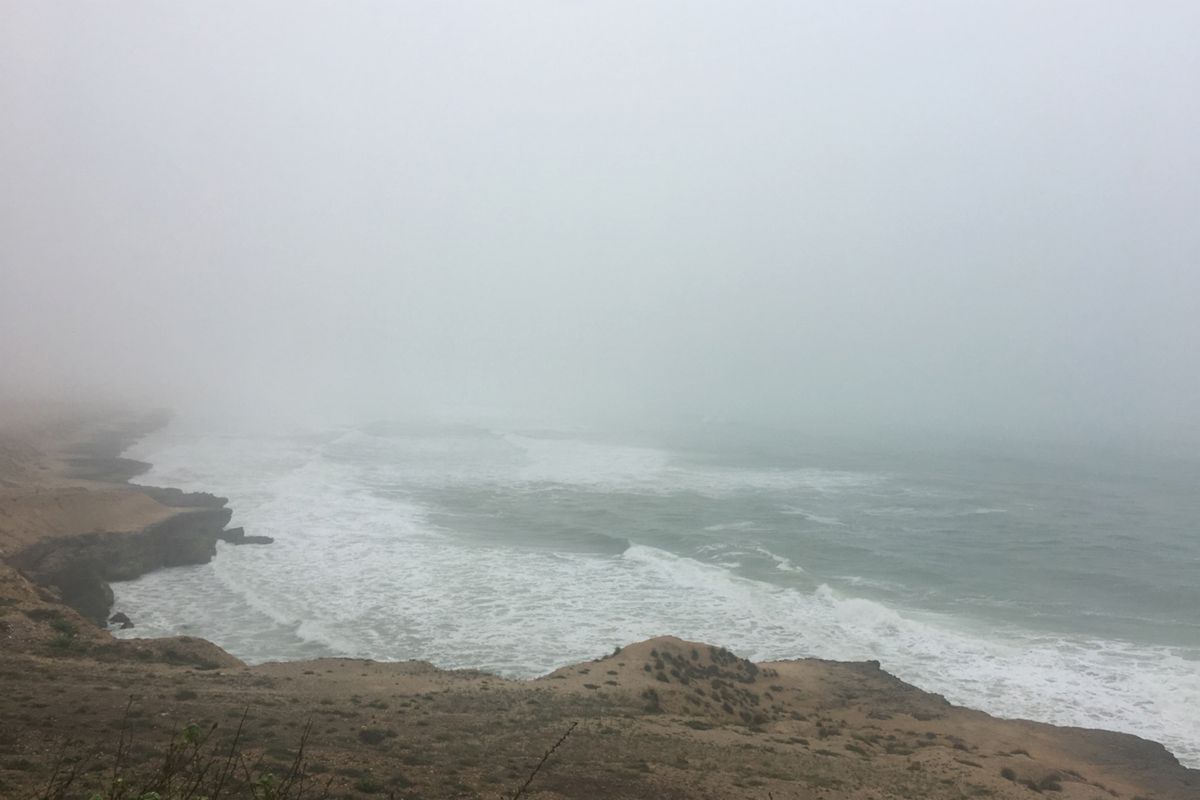
“We are now driving to the Yemeni border.” Please what?!? Isn’t that dangerous? Abdullah laughs. No, it is not. It continues upwards. As we ascend, it gets foggier, cooler and the vegetation richer. Flowers in many different colors stand out against the lush green. The trees appear like shadows protruding from the mist. Abdullah leaves the road and turns off onto a gravel path. He stops at a hill. I can’t see much because the fog is very thick.
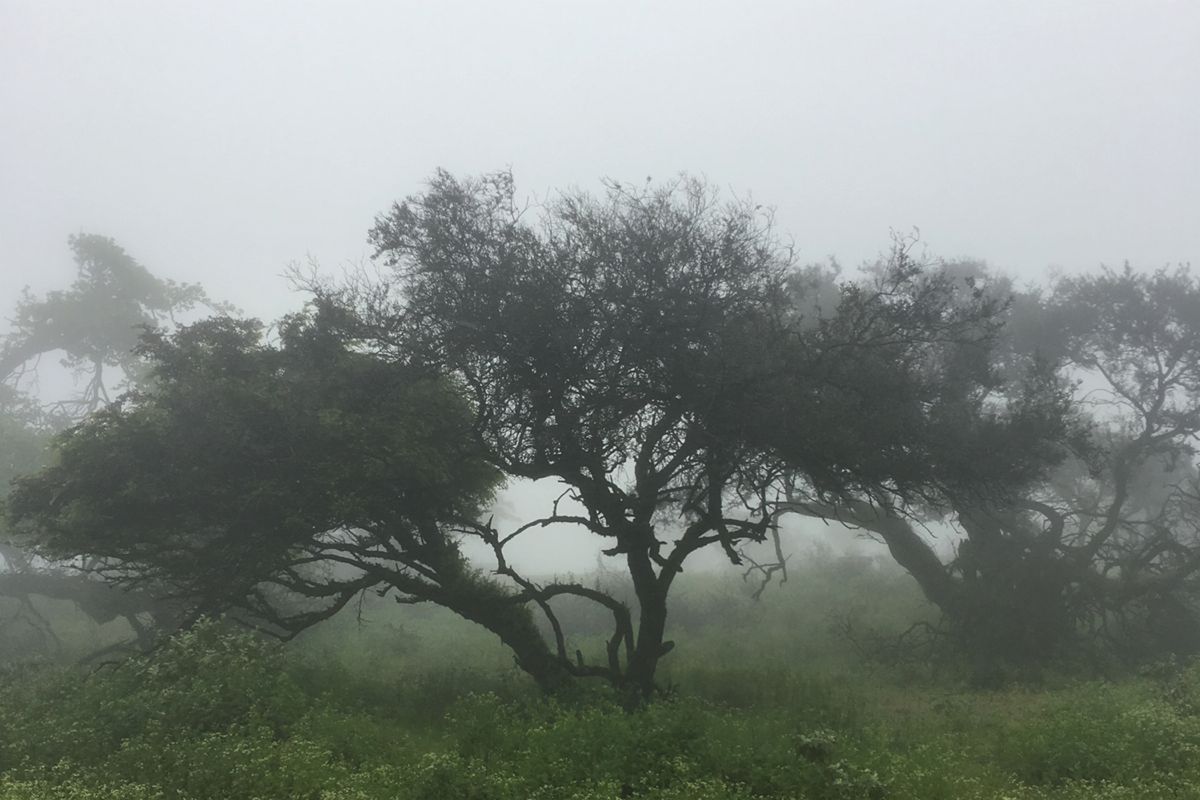
As I open the door, I hear a loud noise. I walk to the wall. The noise gets louder, but I can’t see anything! “We are located above Rachyut,” Abdullah explains to me. There is a steep descent of a few hundred meters and at the bottom there are beautiful beaches that are now invisible. You can smell the salt water all the way to the top.
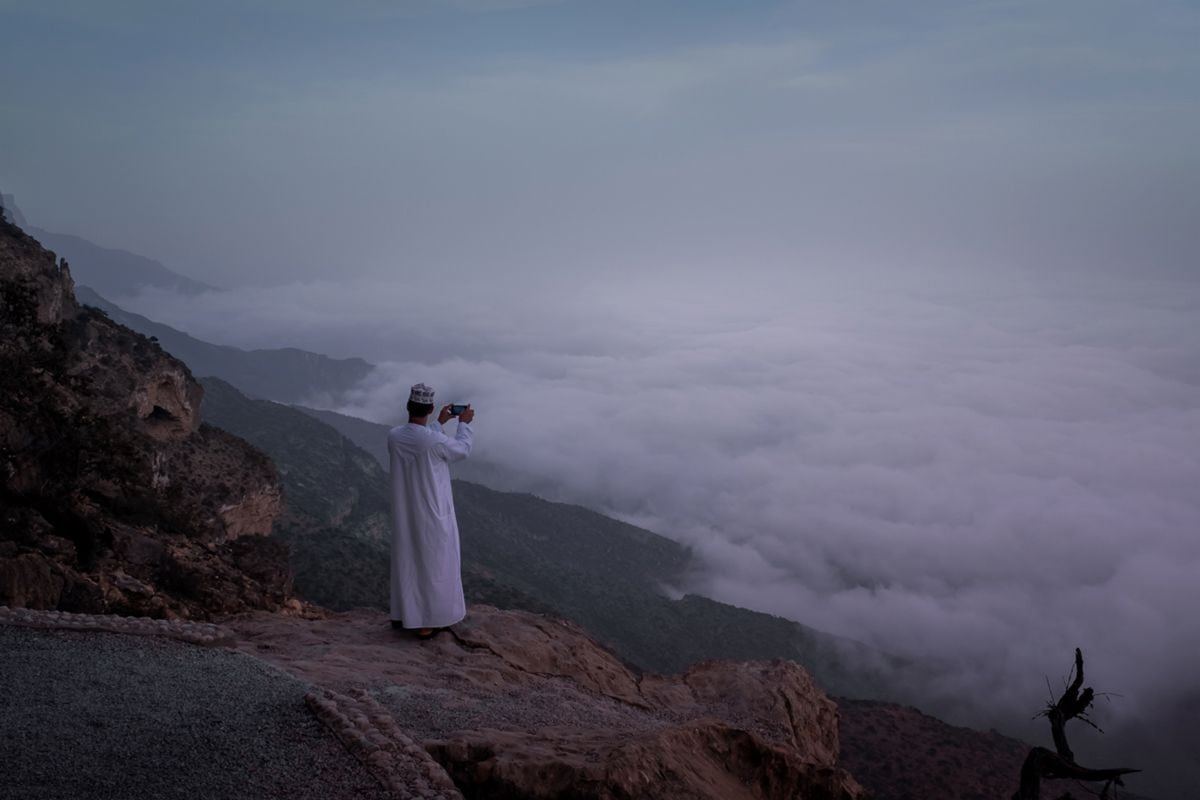
What a surreal spectacle! As we walk along the top of the wall, we get wet from the fine beads of water given off by the mist. We are completely soaked when we get into the car. For me, it feels like after a summer rain.
Taking care through the fog
It goes on. We drive back to the main road and continue our ascent. “We have to drive more carefully now. There are a lot of camels here.” Hardly pronounced, they seem like fantasy creatures from the fog. On and off the road. The animals are so valuable to the country that they are allowed to roam freely.
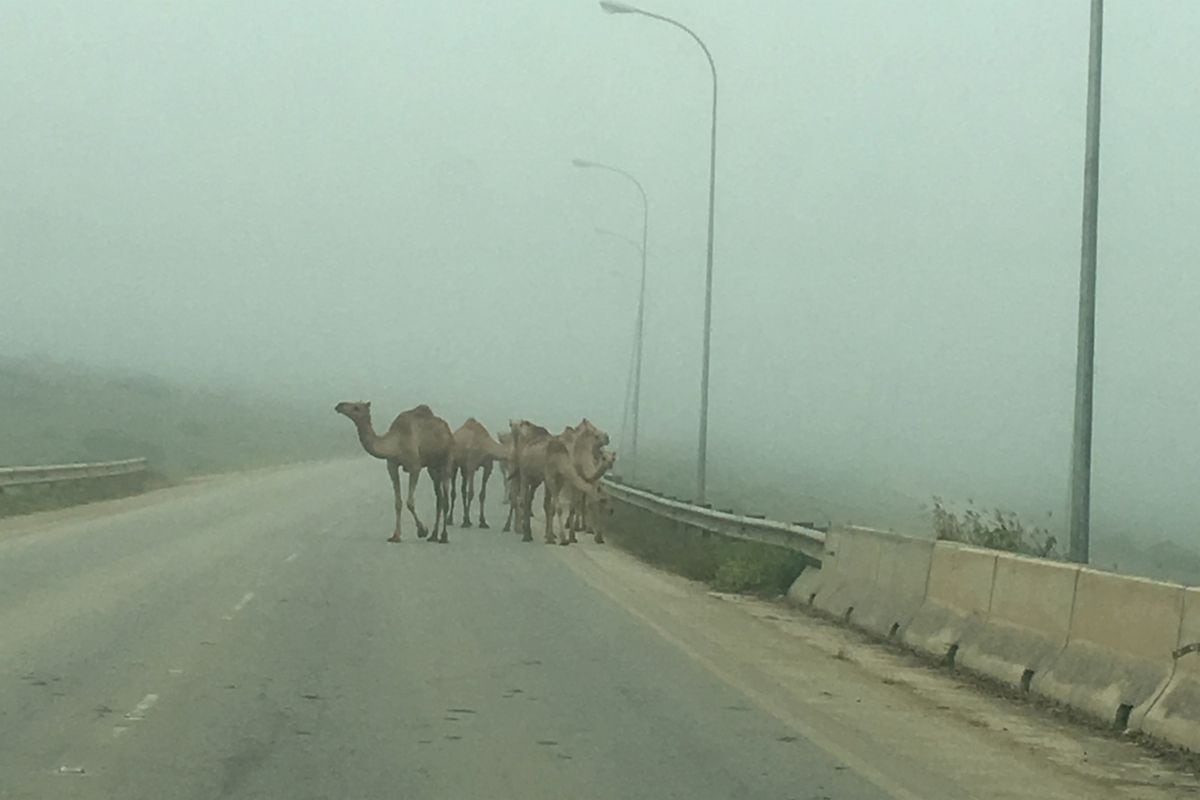
An Omani will be wary of driving one. That would cost him dearly. Another reason: there is a totaled car on the side of the road. The upper part is completely dented. I wonder how he managed that? At least it’s not on the roof. “That’s what happens when you hit a camel. It can be fatal for the occupants …” I believe that immediately. The closer we get to the Yemeni border, the foggier it gets and the more camels we see. Sometimes whole herds are on the road. We have no choice but to wait patiently until the royal creatures clear the way for us. We soon reach the border. In the meantime it has cooled down to 19 Grand. The last section leads along a gravel path, which is covered in mud due to the weather. Only slow progress is possible.
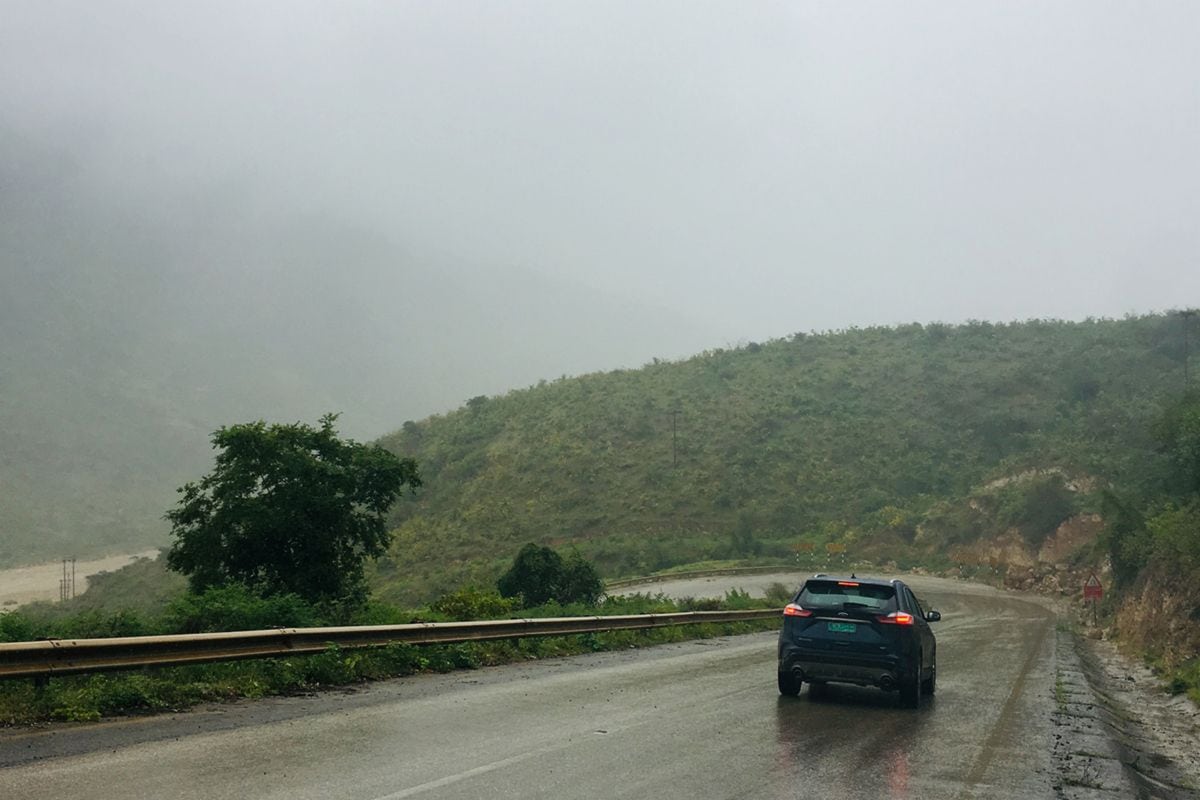
We make it to the border. Unfortunately, we are not allowed to take photos. We are now about 150 kilometers from Salalah and drive back. As we leave the mountains, we surprisingly leave the fog behind us and are greeted by a blue sky. The area already looks different and you can see a lot more! These endless canyons that have now been cleared by the fog!
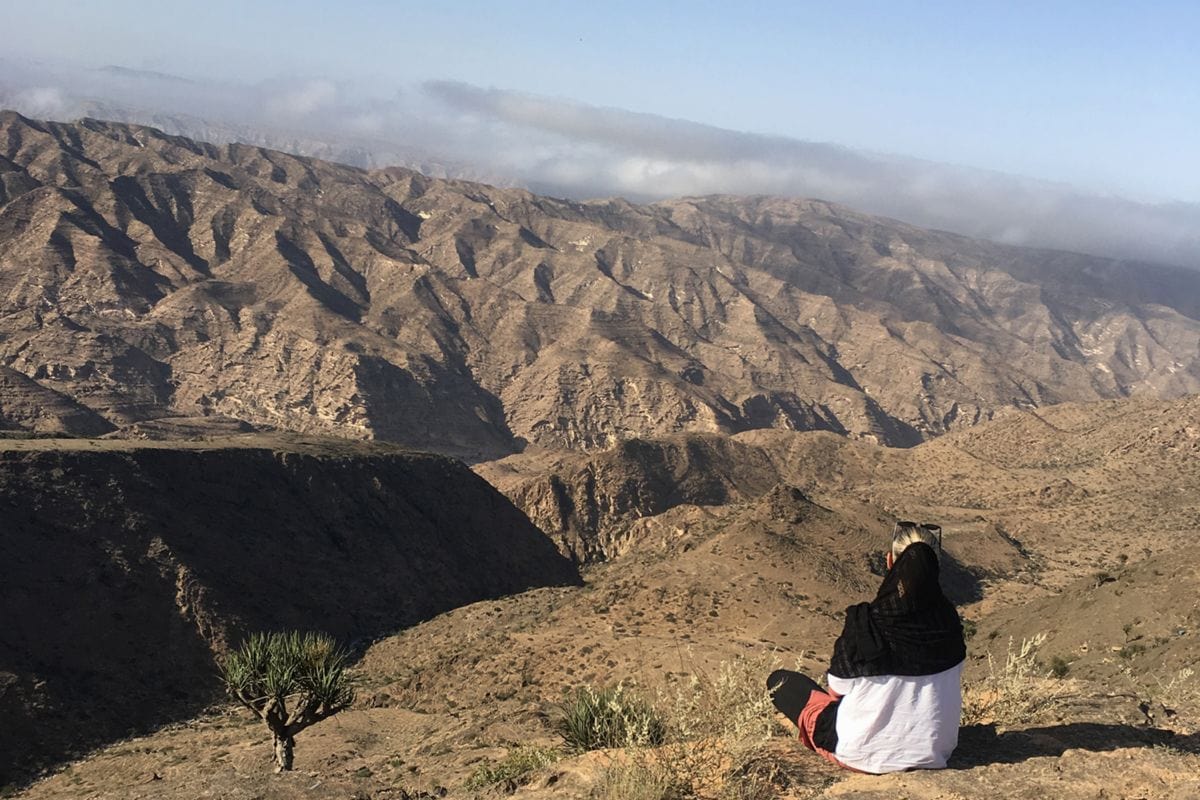
"A nice place to take a rest!"
We arrive at the hotel exhausted. We dine in the Mediterranean restaurant Al Minia. The sky is so clear that the stars smile at me. I’m very tired, but a dip in the pool and stargazing are a must! The next day we prepare for the return journey. Abdullah drives me to the mountains again so that I can see them in the sunshine. It’s as if I were in Europe! This lush green! Wherever there is a tree, you will meet families camping. The monsoon season is enjoyed to the full here. We also have a picnic of grilled chicken with rice and yoghurt before driving the thousand kilometers back. With stops in between, of course.
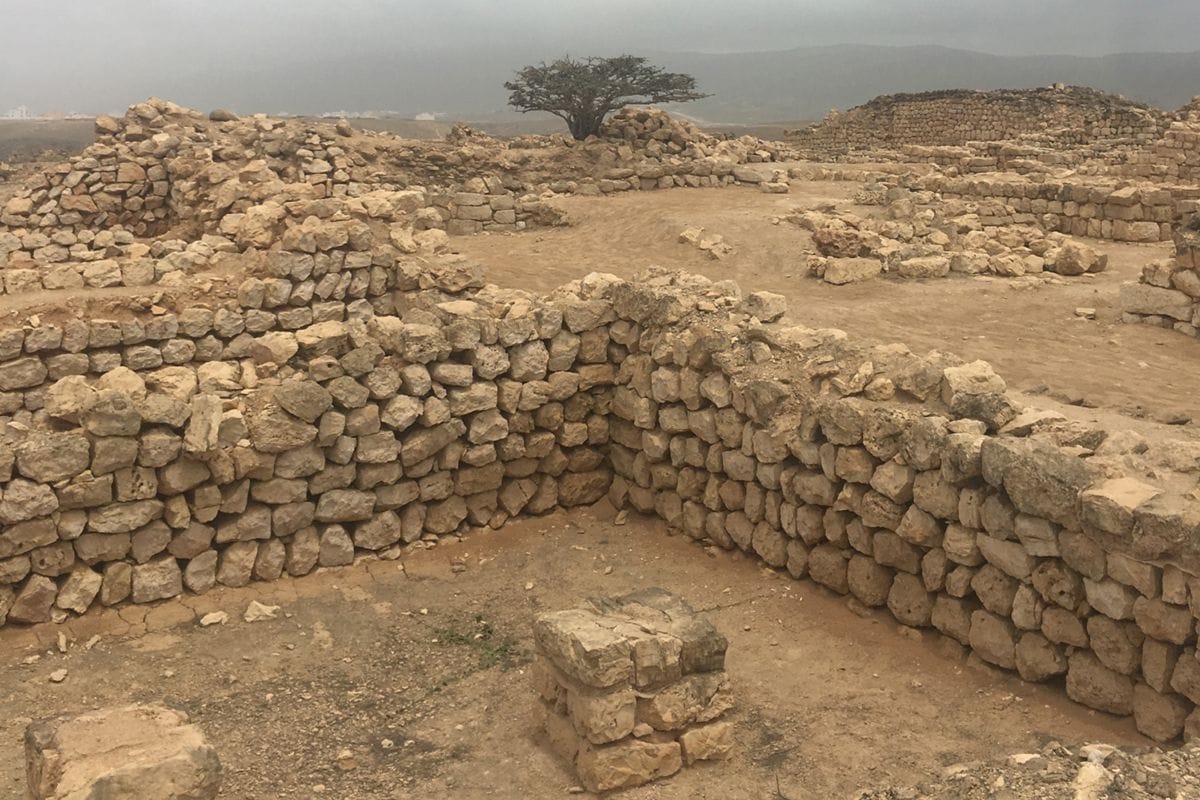
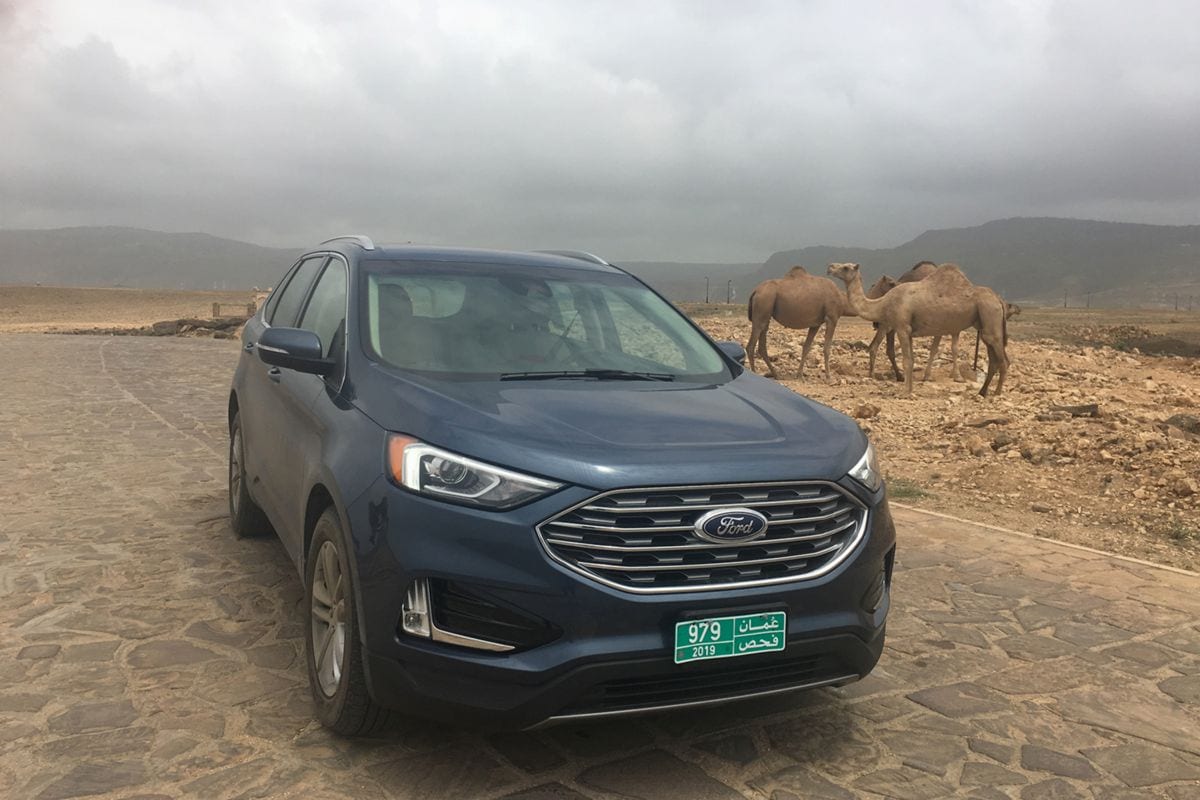
We stop at Sumhuram Archeological Park. This was one of the country’s most important ports in ancient times. We walk through the extensive grounds and admire the ruins. The view is gigantic. The historic city is surrounded by watercourses and green spaces through which camel herds cross. The UNESCO heritage site dates from the fourth century BC to the fourth century AD and is one of the oldest places in the country.
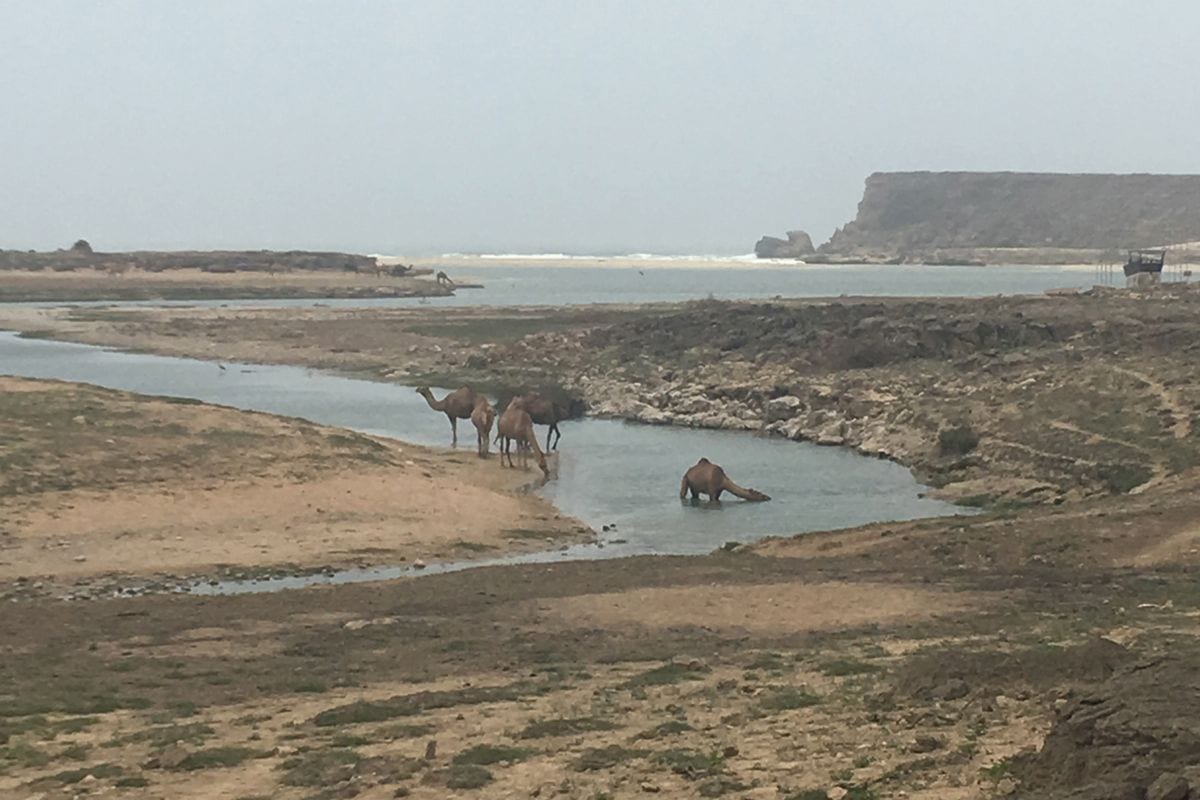
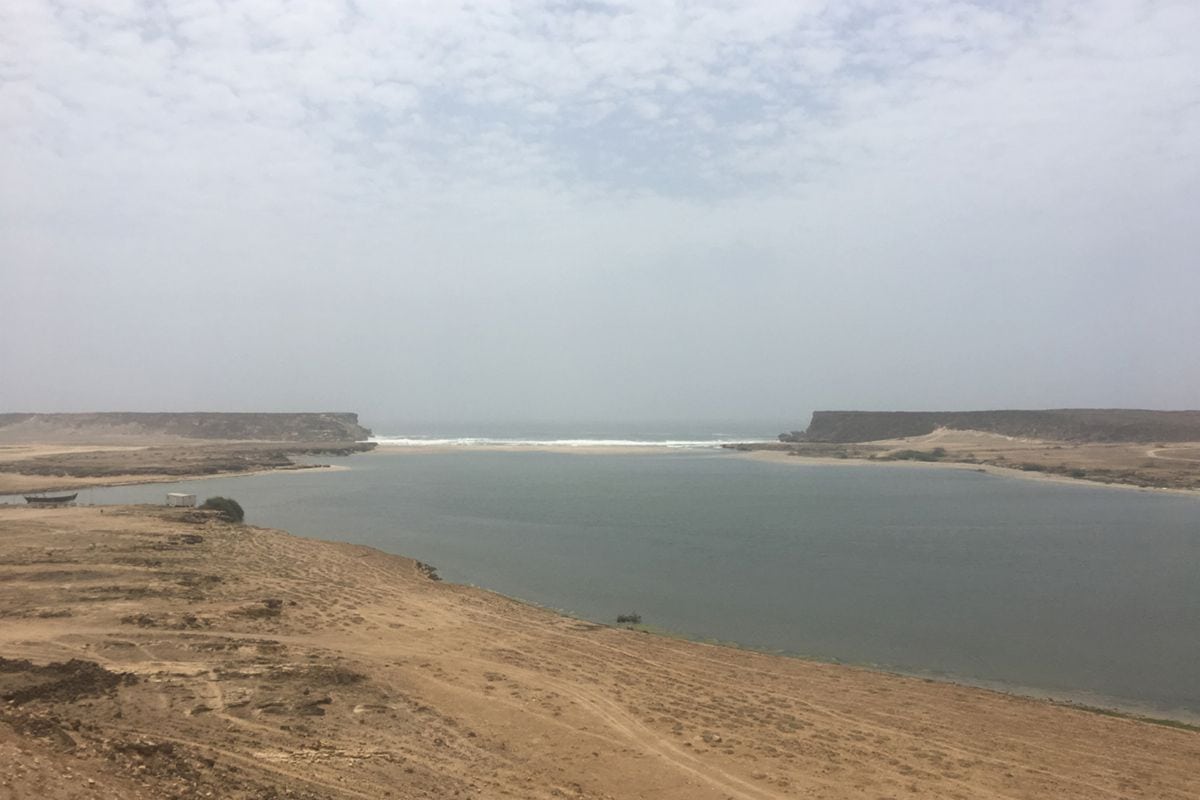
As we drive on, we discover a large waterfall from the highway. We take the next exit. When we got pretty close, we parked the car at the side of the road like so many tourists before us and made a pilgrimage on foot to the natural spectacle. The waterfall is very strong. As the sun falls on it, it casts rainbows. A nice place to take a break!
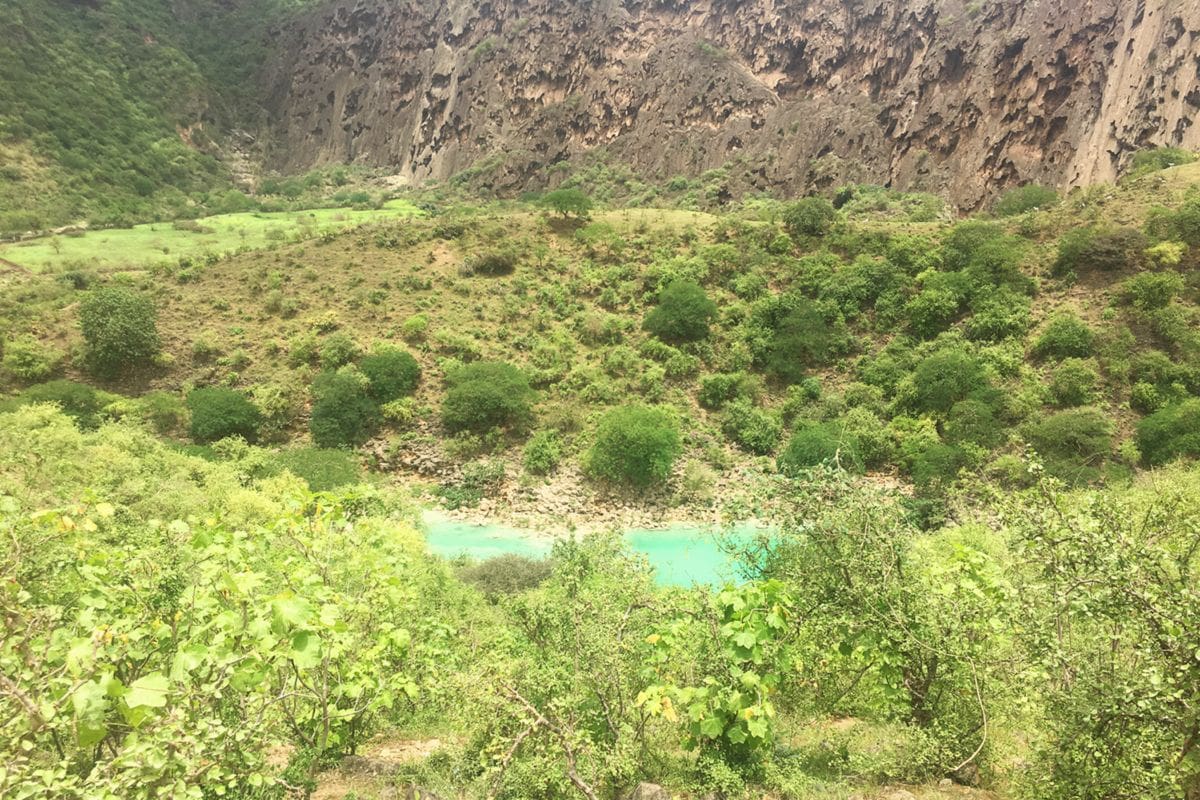
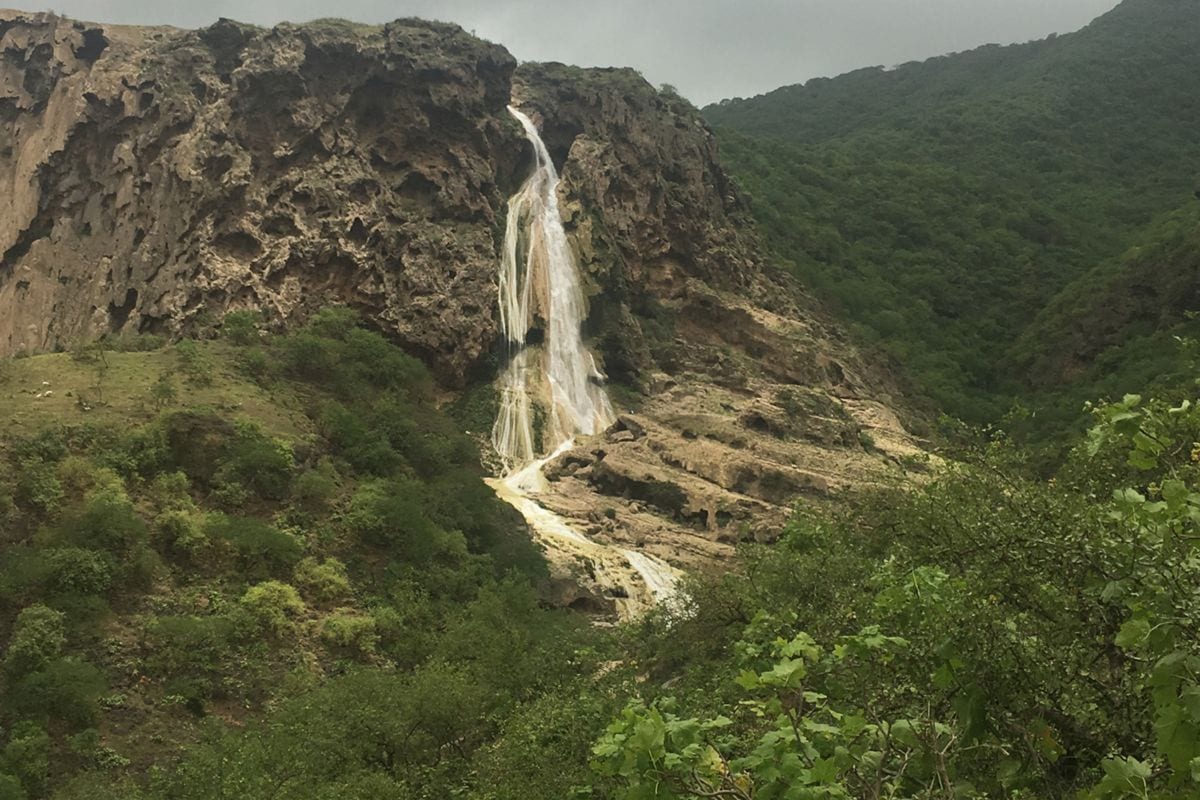
On the way home, we take a small detour to Jabal Al Akhdar, the Green Mountain. At an altitude of 2000 meters, the temperatures here are also pleasant. And it’s pomegranate season. One of the best varieties in the world grows here. But you have to dig deep into your pockets for these. One piece costs up to 2 euros! A large supply for the family joins the boxes of bananas and coconuts in the trunk. It’s late afternoon when we arrive home. It’s over forty degrees again. Never mind. Coconuts and pomegranates will cool us down.
